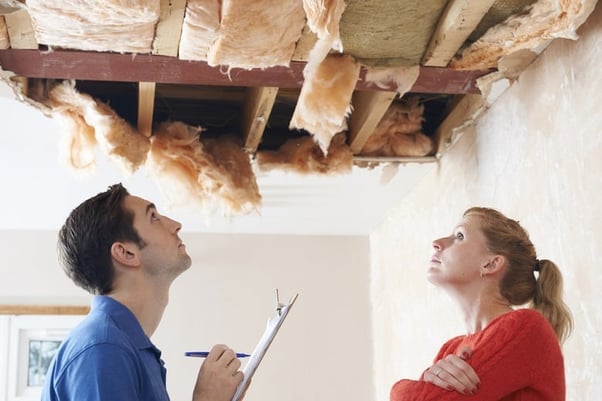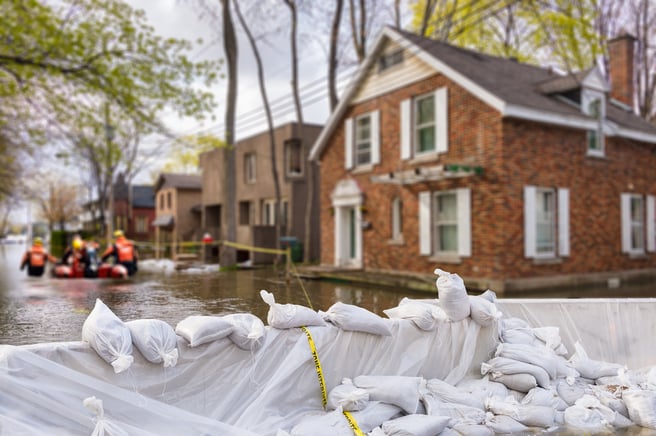How to Handle a Virginia Home Inspection in a Seller's Market

Virginia's post-pandemic real estate market has many buyers but few houses, thanks to historically low interest rates. It's not only driving home prices up, but it's also creating a frenzied market of quick sales and haphazard deals. Sellers are getting multiple offers above the asking price. Maybe you're wondering if you should buy a house "as-is". While it's easy to get caught up in fear of missing out on a home, it's never good to make a hasty buying decision in this situation or forego things like an inspection. There are real financial dangers to waiving a home inspection. That may be easier said than done in the current market but think of it this way: this is a lifetime investment. You want to be sure you know what you're buying.
So you found your home. You put in an offer, and it was accepted. Great! Now the real work starts. Now it's time for your home inspection. Plan to spend $300 to $450 and don't skimp. Here's how to make the best of it and few others things to think about before you close the deal.

1. Attend your inspection.
This is a great way to get to know your new home, learn how various systems in the home operate, and find out what maintenance the home will require. Use references from your realtor or family and friends to hire a reputable inspector rather than the cheapest one you can find. Be sure to give them space and time to focus on doing the best job for you.
2. Access repairs.
In the current market, sellers will definitely exercise their leverage when it comes to home inspections and repairs. It doesn't hurt to ask if the seller is willing to help by reducing the sales price, but it's important to have realistic expectations and be prepared to walk away if needed.
If you're looking at an older home, it's not unusual to find out it's no longer built to code, but make sure the county permitted any additions or major renovations. If you have the budget, you may be able to take on the repairs needed or at least plan for them down the road. Here are the big ones that might be costly to fix and should warrant serious consideration.
- Major roof repairs/replacement
- Structural/foundation problems
- Rotting wood
- HVAC not working
- Water leaks
- Mold growth
- Defective electrical panel
- Exterior siding type and condition

3. Don't sweat the small stuff.
Avoid getting into the weeds on smaller issues like cosmetic changes or general maintenance. A house full of ugly wallpaper is not for the faint of heart, but it can be removed. Paint is relatively cheap and an easy do-it-yourself project. Even kitchen cabinets can be refaced or painted.
Keep your eyes on bigger projects. Get multiple written estimates from experienced contractors. Many times, more repairs are discovered once the work is progressing. Find out the timeline of the work and how you will pay for it. It may be that the work can be done over time. What can you live with and what is pressing?

4. Estimate the insurance.
Check with your home insurance company to be sure any discovered issues won't cause a problem with your policy. In fact, why not get a quote estimate so you know what to expect for the home insurance? While most homebuyers don't think about this until after the purchase, different locations in Virginia have different risks. A local agent can be a great asset here. And that brings us to #5. This one is super important!
5. Make sure the home is not prone to flooding.
Virginia has no flood risk exposure laws and flood zones are expanding throughout Virginia. Buying a home with flood exposure not only means you may have to deal with a flooded home but that you'll also need to budget for flood insurance.

6. Consider buying a home warranty.
Ask your realtor about purchasing a home warranty for one or more years. In a seller's market, a seller will not agree to upgrade old equipment if it's working.
7. Hire a pest inspector.
Ask the seller's agent if the home was ever treated for termites. Ask your inspector to look for signs of termite treatment. Usually, small holes are drilled and filled around the perimeter of the home. If your home inspector finds small signs of pest damage or past treatment, consider getting a second opinion from a pest professional to uncover the complete picture of the damage. You may be seeing just the tip of the iceberg!

Depending on location, the condition, and the price, there's a good chance someone is willing to buy a home right now without an inspection. Don't try to compete there. It's easy to get worn down by the process but stick to your guns. Keep your eyes on the big picture rather than focusing on one house and potentially inheriting an endless stream of expensive problems.
Learn more about Virginia Home Insurance





